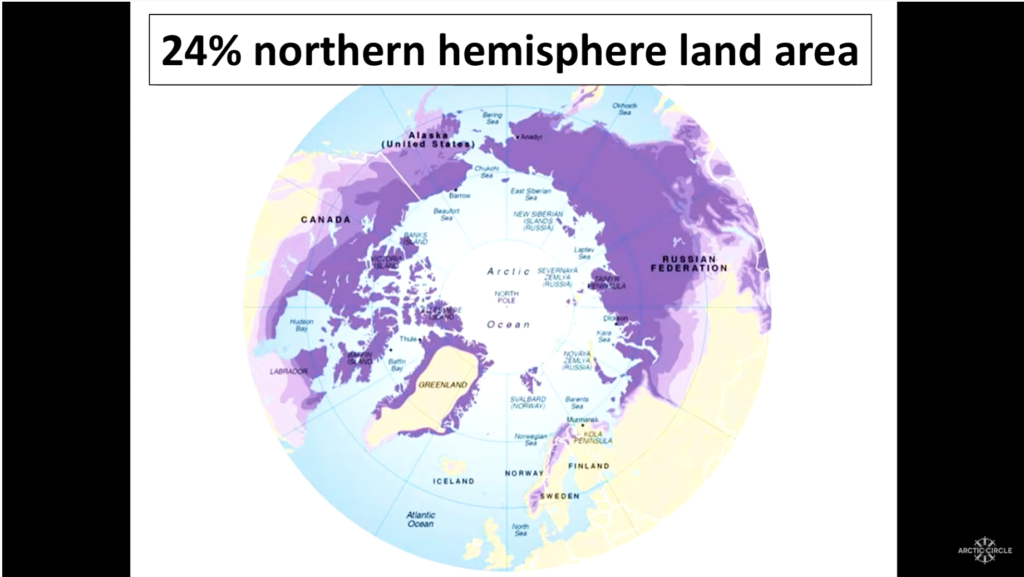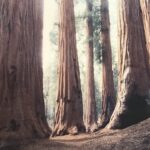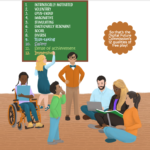In my last newsletter, I mentioned the upcoming event The Dalai Lama with Greta Thunberg and Leading Scientists: A Conversation on the Crisis of Climate Feedback Loops. I attended the livestream Friday evening, January 9. I know a few other Mindful Digital Life readers attended as well. Along with H.H. the Dalai Lama and Greta Thunberg, two scientists joined the session—William Moomaw, lead author on reports of the Intergovernmental Panel on Climate Change/IPCC, and the co-recipient of the 2007 Nobel Peace Prize, and Susan Natali, renowned Arctic scientist. (If you missed it live, you can watch it here.) The session was very brief for this enormous topic. I think the main purpose of this conversation is to educate the public on climate feedback loops and to introduce a short series of films on the topic—watch here.
Moomaw spoke about the role of forests in climate crisis feedback loops. In particular, he talked about the importance of keeping mature forests intact. You can go deeper into this topic here in a Yale Environment 360 interview with Moomaw from October 2019. Susan Natali spoke about Arctic warming and the effects of permafrost thaw on global climate. I recommend that you create the time to watch this 5 minute video from Natali’s presentation at the 2019 Arctic Circle Assembly in Reykjavik, Iceland. Why is education about Susan’s work so important? She spells it out at the end of her presentation: “…Carbon emissions from permafrost currently are not accounted for in most global climate models. So essentially, we have another greenhouse gas-emitting country that we’re not accounting for.” Read this interview with Natali on Thawing Permafrost to go deeper in understanding the effects of permafrost thaw on arctic ecosystems and the consequences of these changes for carbon cycling.
I left this event with an even greater appreciation for Rachel Ignotovsky’s book on ecosystems, The Wondrous Workings of Planet Earth. This book is a required companion to the Climate Emergency: Feedback Loops film series. See if you can get it from your library.
I have included A LOT of links here. Usually, I try to minimize links. But this post is one to revisit. I encourage you to work your way through these interviews and films. Get to know Bill Moomaw and Susan Natali. Our children, teenagers, and our students need to have examples of people presenting solutions to the serious challenges we face in the climate crisis. One of Natali’s goals is to mentor and train the next generation of arctic scientists. Let’s help her.

Resources for conversations about chaos at the Capitol, January 6, 2021
Facing History and Ourselves is providing ongoing support to help adults facilitate conversations with young people about the Capitol events. I have participated in Facing History and Ourselves workshops. I highly recommend everything they do.
Educator Dena Simmons offers a powerful set of “Ideas for engaging students about the chaos at the Capitol.” In my Oct. 2 newsletter, I wrote about the webinar I attended—Social-Emotional Learning for an Anti-racist Future—facilitated by Dena Simmons and hosted by Facing History and Ourselves. Dena Simmons, Ed.D., is the Assistant Director of the Yale Center for Emotional Intelligence and an Associate Research Scientist at the Yale Child Study Center.
With so much information coming our way daily, it’s tempting to skim. Skimming is a survival skill. But sometimes, we need to set skimming aside to drill down into materials. I hope you’ll dedicate some time to work your way through the links I’ve shared in this post. I recommend creating a few calendar appointments to circle back and dive in. Let me know what you discovered.
Take good care. Keep your spirits up. Connect.


